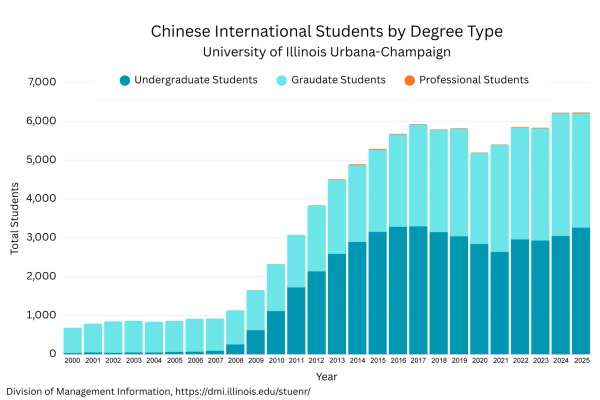The do’s & don’t’s of applying to graduate school
Sep 24, 2008
For most students, four (or five) years of undergrad is just the beginning. Many of us have dreams of going to graduate school to become a lawyer, doctor or a business professional. But most students are clueless to the process and how to make themselves stand out as a great candidate.
Most freshmen and sophomores don’t realize how crucial their first two years as undergrads are to their graduate school dreams. Even after taking those extremely difficult and stressful tests (LSAT, MCAT, GRE, etc.) seniors may still feel lost when it comes to the actual application process. I was able to speak to admission counselors from U of I’s law school and MBA program and both gave wonderful advice. Unfortunately, my requests to the College of Medicine were declined.
Applying to Law School
Paul Pless has been the Assistant Dean of Admissions and Financial Aid for the University of Illinois College of Law for five years. During his time as an admission counselor he has seen many applicants do some crazy things in their attempt to get into law school. “One time an applicant sent a copy box full of his civil cases. Though I appreciated the effort, it didn’t help his chances to getting admitted,” Paul said. He also added, “Though I have never experienced it, I have heard of applicants sending a shoe, with a note attached saying ‘Just trying to get my foot in the door.’ As entertaining as that would be, it wouldn’t help a student get into our law school.”
One of the most important factors of the law application is the personal statement. The best approach for writing these is to pick a theme, not to write your life in chronological order. In addition, Pless advised applicants to “avoid making excuses for your ‘shortcomings.’ If you have a low GPA or LSAT we know it and we don’t need you to remind us. You only have so many words to write with. Use them to talk about all of your positives.”
Get The Daily Illini in your inbox!
There are also certain qualities that really stand out in applicants. “We are looking for applicants with leadership roles — those who are able to work well in small groups and accomplish big feats.” He added that the most important thing a student can do when applying to a law school is to visit the school, sit in on a class, talk to students and really figure out why you want to be there. Then express those feelings in your essay and show the school that you are really excited about being admitted.
Applying to an MBA Program
Jackie Wilson has been the Director of Illinois MBA Admissions & Recruiting for eight years. During her time as the director, she says the craziest thing an applicant has done to get admitted was to send us an entire book he wrote. “As if we were supposed to read the whole thing,” she quipped. “Every year we get a significant amount of applicants who send a personal statement tailored to another school. And even though people are applying for a prestigious MBA program like ours, we always find essays with grammatical errors.”
Wilson also said that applicants should be smart with photos they send with their application. “We understand people want us to know they are sociable, but sending us a photo of you doing a keg stand, even if you are 21, is not the best way of conveying that message.”
Another misconception about the admissions is that you have to have a business degree. Not so, according to Wilson. “Applicants shouldn’t be deterred from applying to get their MBA if they weren’t a business major in undergrad . only a third of admitted classes have business degrees.”
Wilson said that letters of recommendation are very important to the MBA program at the University but applicants should be sure to get letters from the right people. They should be from people that have worked closely with them: “we would rather read a letter from a first year associate who was your boss during an internship, than the CEO or partner of some company who you never worked with.”
As someone who’s applying to law school, I wish I would have known this information earlier. It could be the difference between getting into the school of your choice and getting into whatever’s left.
Paul is a senior in computer and political science and is studying for his LSAT.





